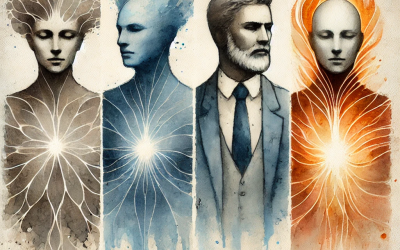In Internal Family Systems (IFS) therapy, Firefighter parts are protective subpersonalities that react quickly and often dramatically when a person is overwhelmed by emotional pain. Their goal is not to cause harm, but to prevent further suffering—usually by...
Internal Family Systems
Questions to Ask a Firefighter Part in IFS Therapy
Questions to Ask a Manager Part in IFS Therapy
In Internal Family Systems (IFS) therapy, Manager parts are proactive protectors that work to prevent emotional pain from surfacing. They strive to keep the system in control by managing behaviour, emotions, relationships, and external impressions. Unlike...
Panic in the Therapy Room: Grounding vs. Internal Family Systems
When someone experiences a panic attack during therapy, the typical response is to help them “ground” — reconnecting with the present moment through the five senses, breathwork, or body awareness. This somatic approach often offers vital immediate relief. However, the...
The ‘F’s of IFS: A Guide to Internal Family Systems’ Core Process
I recently went on an Internal Family Systems (IFS). So that I have an easy reference, I am writing a few articles around what I learned. IFS was developed by Dr. Richard Schwartz and is a psychotherapeutic model grounded in the belief that the mind is naturally...
The ‘C’s of the Self in IFS: Cultivating Compassionate Presence
Introduction In Internal Family Systems (IFS) therapy, developed by Dr. Richard Schwartz, healing doesn’t come from analysing or overpowering parts—it comes from being present with them from the core of our being. This core is known as the Self. The Self in IFS is not...
An Introduction to Internal Family Systems (IFS)
Internal Family Systems (IFS) is a transformative psychotherapeutic approach developed by Dr Richard C. Schwartz in the 1980s. Rooted in systems theory, IFS views the mind as being composed of “parts,” each with its own unique perspectives, emotions, and...
An Introduction to Internal Family Systems (IFS)
Internal Family Systems (IFS) is a transformative psychotherapeutic approach that views the mind as a system of “parts” working together—much like a family. These parts represent different emotions, behaviours, and roles that form as a result of life experiences. By...
To view the full article, just click on the article title (in dark blue.)

